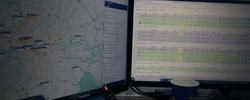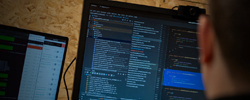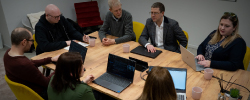How does intellectual property work with custom software at Switchplane? Who owns what at the end of a project? Do clients own their own systems?

All software is formed of many different parts and layers, which are are combined together to create a custom application. For instance, most applications will have:
- databases - allowing you to save information and query it later
- file storage - for loading and saving files on a disk or in the cloud
- user interface - presenting things to the user and capturing input
- etc
An application of any meaningful size uses hundreds or even thousands of these components, combining them to create new functionality. The challenge with intellectual property is that each component can have different ownership and licensing arrangements.
It's a bit like baking a cake. Eggs, flour, butter, and sugar are combined to make a new cake - but the cake can't exist without these ingredients, and it’s tricky to remove a particular ingredient once added.
How does it work then?
Even though there are hundreds of different components, it's possible to categorise them:
- Third-party dependencies such as databases, AWS, other open source software, etc.
- Switchplane Engine generic components that we have developed which power all of our systems, for instance our deployment capabilities, user management, email platforms, etc.
- Client-specific components that we have created specifically for you, e.g. a process that's unique to your business.
For third-party components, we try to use open source, freely available, or well established suppliers. This ensures that we and our clients have the right to use those components or services.
For Switchplane Engine components, we grant you a non-exclusive license for usage. You don't "own" the components, but you are able to use them in perpetuity for the operation of your system. However, you're not allowed to sell the source code unless it forms part of the sale of a business.
For client-specific components, we grant you a non-exclusive license for usage. You don't "own" the components, but you are able to use them in perpetuity without restriction on usage. We retain the right to use the source code as we see fit.
If you wanted to migrate to a new supplier, then they would need to create a suitable hosting environment within AWS. We would probably need to carry out some consultancy and development work to migrate the system, depending on how complex it is.
hey!
We build custom software with your team, for your team. Our apps and web platforms bring about meaningful change for businesses across the UK.
































